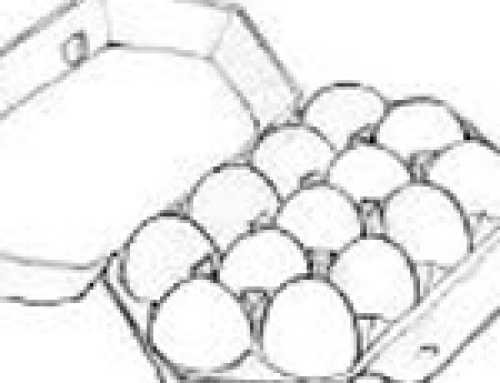The planet would be totally devoid of life, plant and animal, if there were not an imperative to reproduce. Some forms of life reproduce by simply splitting in half. Others rely on the wind. And some forms of reproduction are infinitely more complicated. No matter how, all forms of life reproduce on auto-pilot. Nature has her way.
How any form of life develops once it is “born” depends upon the confluence of genetic inheritance and environmental conditions. A rose bush will develop more or less bloom depending upon how its own sturdiness is impacted by the soil, the light and available water. Fish will develop grotesquely or will not survive if its native needs are overpowered by an environment polluted by industrial waste. Cats, dogs, horses could find that their natural inclination is at cross- purposes with cruel environments (human or otherwise) that traumatize them and alter their social development.
We are vulnerable to large and small insults which alter our development as well. This cannot be helped. It’s part of the deal of living on planet earth. Who we are born to be often cannot unfold in a pure way because the demands of the environment mandate that we accept strictures that run contrary to what would be simpatico with our basic nature. And given the long dependency of the human animal, we are hardly in position to protest.
Our vulnerability notwithstanding, most of us grow up and manage to function in the world. We run into trouble when the challenges of every day living exceed whatever handicaps we might have developed in an early environment.
Put in a context that is based on current science, it is now proven that apes and humans display imitative behavior that is integral to the development of empathy and connectedness. In the early 1990’s Giacomo Rizzolatti (et al) were able to determine that there are neurons in the brain, now called “mirror neurons,” which are activated in specie-specific relationships. These neurons are critical in the development of language (communication) and emotional awareness (feelings). It is not hard to understand how important it would be in a baby’s development to be “mirrored.” Furthermore, our neurochemistry and the exposure of our brains to hormones insure that we need the connection to others that we use our mirror neurons to experience. Hence, nature sees to it that in theory at least “no man is an island.”
If, when we are youngsters, the zone in the brain where mirroring takes place is appropriately stimulated by way of empathic relatedness, then we can develop into a socially appropriate human. In addition, we can develop into a person who has an accurate sense of ourselves. Say it another way, we develop an adequate level of self-esteem.
Conversely, if we are neglected, or if we are not acknowledged for our unique qualities, (and many other “ifs”), we are at risk for growing up to doubt ourselves and to feel insecure about making the decisions which determine the direction into which our adult life will unfold. And if we are abused in any way, the risk of a compromised level of self-esteem magnifies.
Now enter Infertility. To borrow from a Cole Porter song: “…birds do it, bees do it, even educated fleas do it…” but as for you – too bad. How could your level of self-esteem not be shot full of holes when nature has excluded you from its norm? Meanwhile, being excluded from the reproduction club, psychic blow that it is, is only the beginning.
When the world stops reeling after you are declared infertile, what you are left with is an ongoing need to think clearly and decisively. The inordinate demands of the fertility challenge and the protracted amount of time that could be involved to bring it to resolution not only require clear thinking, but emotional strength and steadiness, access to internal resources, enormous resiliency in order to recover from each month’s potential disappointment, and the capacity to know what you are feeling so as to communicate it effectively to the people upon whom you rely for support, treatment – and in the case of your partner – cooperation. If you have not been appropriately mirrored, you will be less likely to feel qualified to meet the challenge because you would not have learned to value and trust yourself and the opinions that you form.
My many years as a professional working with the infertile population have shown me myriad ways in which self-esteem figures into the depression and anxiety that is so common under these circumstances. And while the psychic blow is bad enough, the failure to have been mirrored appropriately results in the person describing to me, more often than not, self-images that are like reflections in a fun house mirror. The lack of accurate mirroring leaves us floating in a gravity-less soup, prone to creating distortions about the self and the circumstances.
The main category of distortions is the oozing of negativity. “I’ll never get pregnant”, This IVF will not work”, “Bad things always happen to me” – sums up the mood that takes up residence in the psyche. Negativity appears, first on line, eager to zoom in and fill the vacuum left by the diagnosis of infertility. The shock of the diagnosis has a force that would suck the stability of the status quo out of a rock. Before you know it, no matter how upbeat you may be by nature, you’re likely to be battling with this uninvited mental resident who is on a mission to be stuck in the groove of a nay-saying broken record.
This is an opportunity for you to separate the wheat from the chafe, so to speak. It would be important to be able to scrutinize negative thoughts and feelings and to reframe and rework them in a way that allows you to keep your sights on the miraculous potential of treatment.
Negative thoughts are demanding, but it is possible to drive a wedge between the process of thinking them and the empowering techniques that can be used to manage them. Negative thoughts are the chafe and can be sent blowing away with the wind. You need to keep the wheat – keep the strength of will and clarity of direction and purpose that can only reign supreme in your psyche if you understand that: 1)it is possible to remain optimistic and 2)that you may need some guidance, encouragement and education in order to stay the course in a positive direction. In other words, you may need a person in your life (a friend, a partner or a therapist) who can accurately mirror you and reinforce the positive, optimistic potential of modern medicine and the power of the teamwork between you and your partner.
Negative thoughts reflect negative self-esteem as much as and sometimes more than negative circumstances. When the circumstance of infertility strikes, your own self-image is not likely to be the first thing on your mind. Yet, to look at how you look at yourself can be the most healing and freeing way to invest your energy. Once you are in a medical setting in which you have confidence, the most productive way for you to spend your time, is to look in the mirror and learn to honor and esteem yourself.







